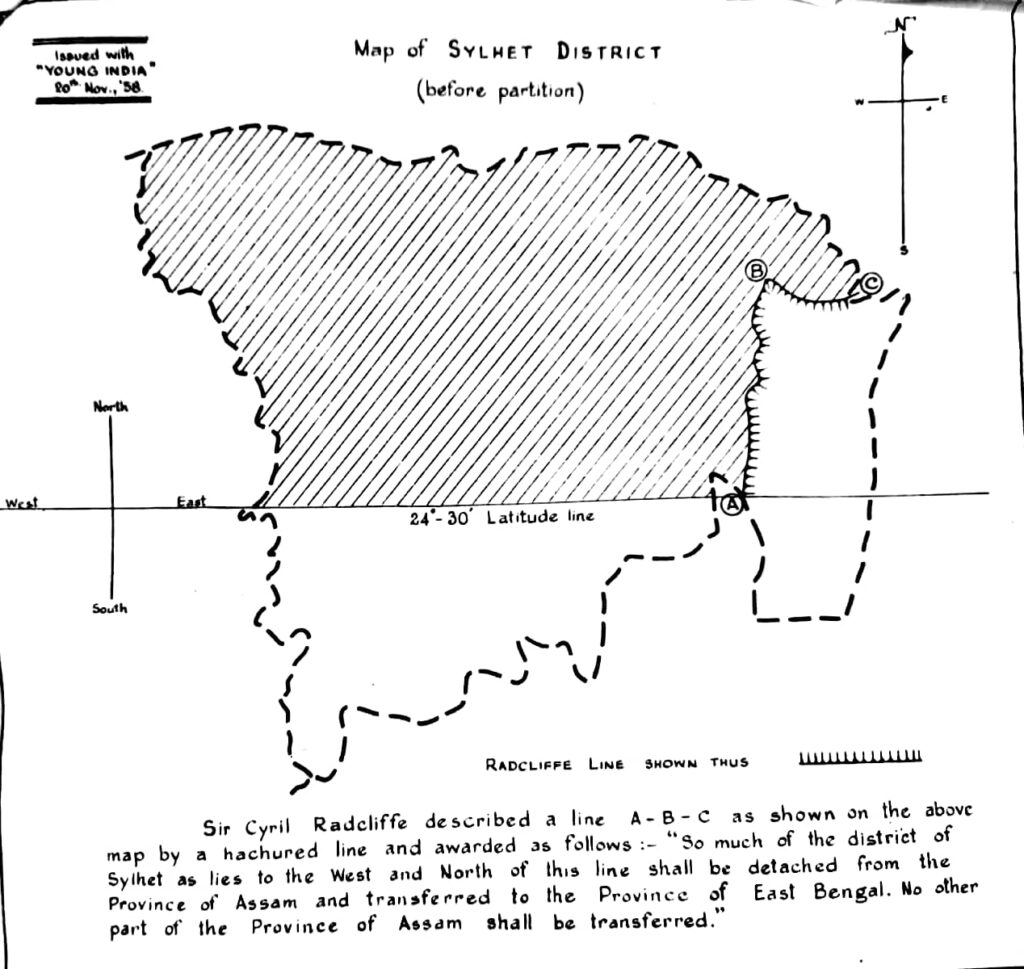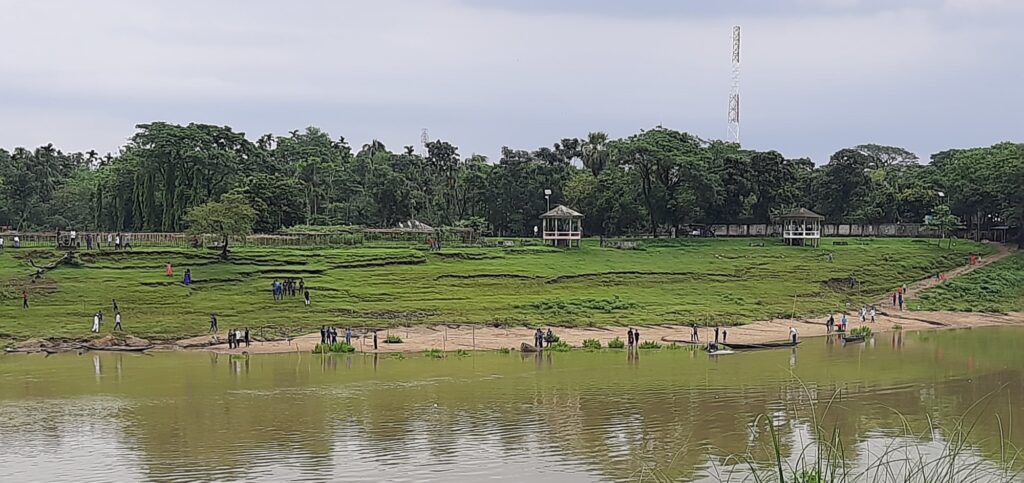Monolina Nandy Roy
The Citizenship Amendment Act (CAA) and National Registration for Citizenship (NRC) which have been kept in abeyance due to corona virus pandemic will surely raise its head again soon. But the controversy around citizenship has generated immense interest in partitions historiography and one positive outcome has been the rediscovering of the Sylhet Referendum once again in the imagination of scholars, political analysts and even the Sylheti people living in different parts of India and abroad. Many argued that the politics surrounding the foreigners issue in Assam and subsequent demand for updating the NRC had its genesis to the Sylhet Referendum of 1947 which led to the amputation of Sylhet from the state of Assam.

Sylhet Referendum was the most tragic, horrible and momentous events that permanently changed the lives and destinies of millions of Hindu Sylhetis who were compelled to leave their homeland (Sylhet) and migrate to undivided Assam as refugees. At one stroke, the people who were living in a particular place with same legacy and inheritance were forced to migrate to a new place at the cost of loss of identity, culture and a deep sense of pain and trauma. What happened to those people is not a story that has been acknowledged, the Sylhet Referendum is a live experience as far as North East India is concerned. This is partly because dominant partition story has been restricted to Hindu- Muslim binary, while in Assam this dynamic was completely subverted to fuel an antagonism based on ethno-linguistic line. That is why the event that took place in 1947 has a lingering fall-out upon the contemporary political scenario affecting the lives of many. India that was curved out basically through negotiation and contestations at the top to put a permanent solution to communal misgivings primarily of it leaders find it difficult even today to decide who the Indians are and as a result of this indecision an inclusive democracy that empowers all remains a far cry.
Sylhet Referendum was virtually a vote on the twin issues of reorganisation of India on communal line and Assam on linguistic basis. For the Assamese there was a dual apprehension that Assamese Hindus would be dominated by the Muslims and Assamese culture and identity would be obliterated in the predominantly Bengali state. Thus, 3rd June, 1947 statement was considered by the Brahmaputra valley in the words of Dr. Sujit Choudhury, ‘a God sent opportunity’ and there was a subdued sense of relief in Assam valley. Moreover, the inner current of fragmentation within the then Surma valley politics added fuel to the fire for the curving of Sylhet from Assam finally sealed the fate of Sylheti Hindus and nationalist Muslims to a great extent and accepted the result as fait accompli because of peculiar mingling of regionalism, localism, communalism and cross current of clash interest group. As a result, while the country was drifting towards partition on communal line, the people of Surma valley could not read the symptom properly. Their failure to read the portent of future made them the worst victim of history and the valley is yet to recover the accumulated loss that followed the Sylhet Referendum of 1947.
In trying to highlight the plight of the Sylheti Hindus, my intension was not to support religious persecution of any kind rather highlight the more complex and under-analysed dimensions of the anti foreigners movement in Assam. For many Hindu Sylhetis, the idea of a home land still continues to remain evasive. Sylhet Referendum and independence of the country has completed 74th year and started elysian 75th year. This anniversary of the Sylhet Referendum may be a good opportunity to reflect upon the politics of d for the deprivation de-territorialised Sylheti Hindus who will perhaps continue to be forgotten because in politics they do not have any role to play. Needless to say, need of the hour is just reasonable law to seek a balance between protection of basic human rights as well as unnecessary harassments of citizens.
(Dr. Monolina Nandy Roy is Associate Professor in the Dept of Political Science, Karimganj College, Karimganj, Assam.)




It speaks a lot with a good insight into the problem which needs a sincere , prudent and honest effort for its solution. No doubt, the article is a thought provocing one.